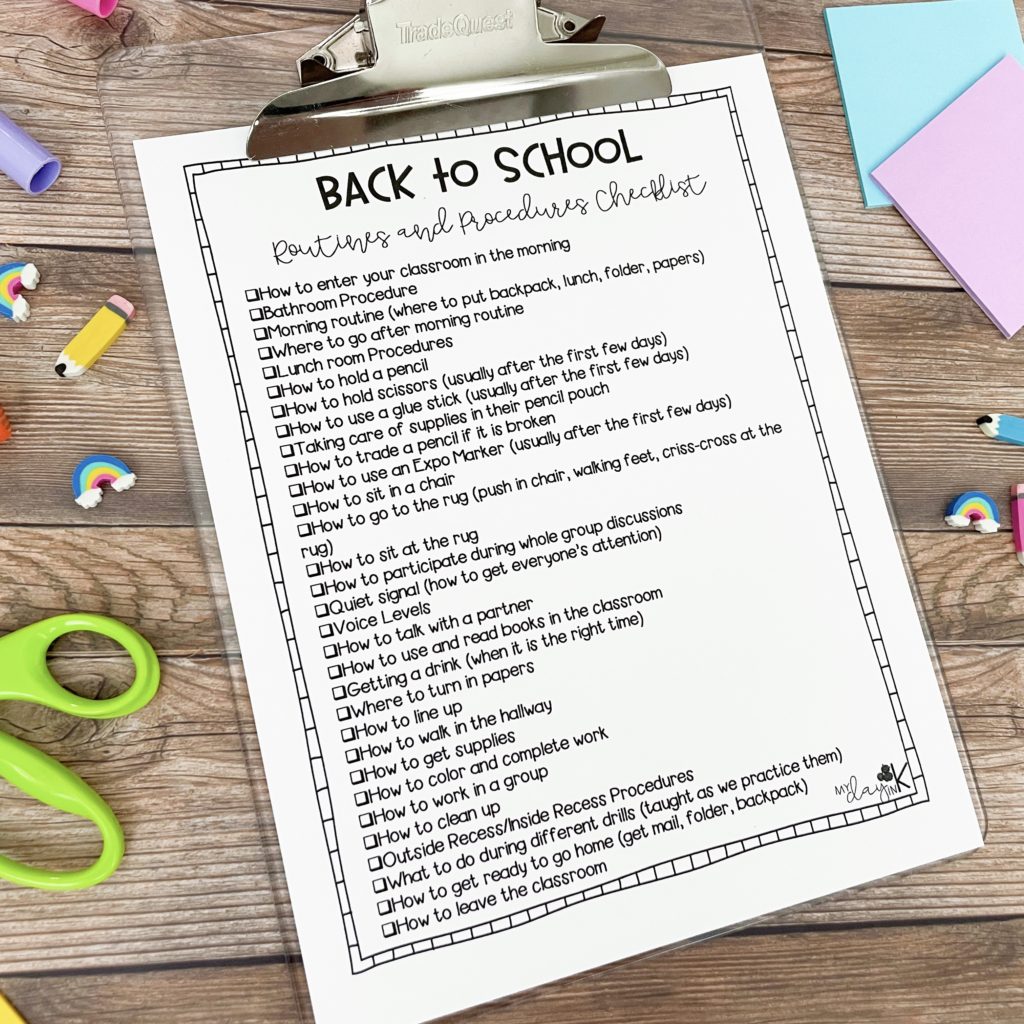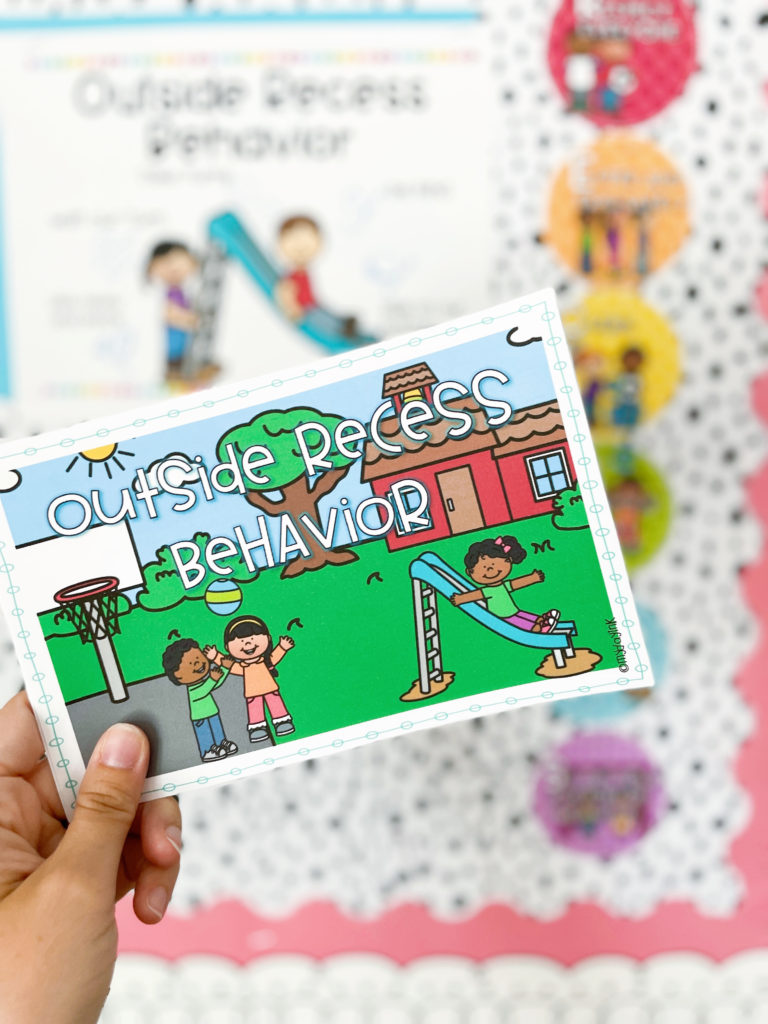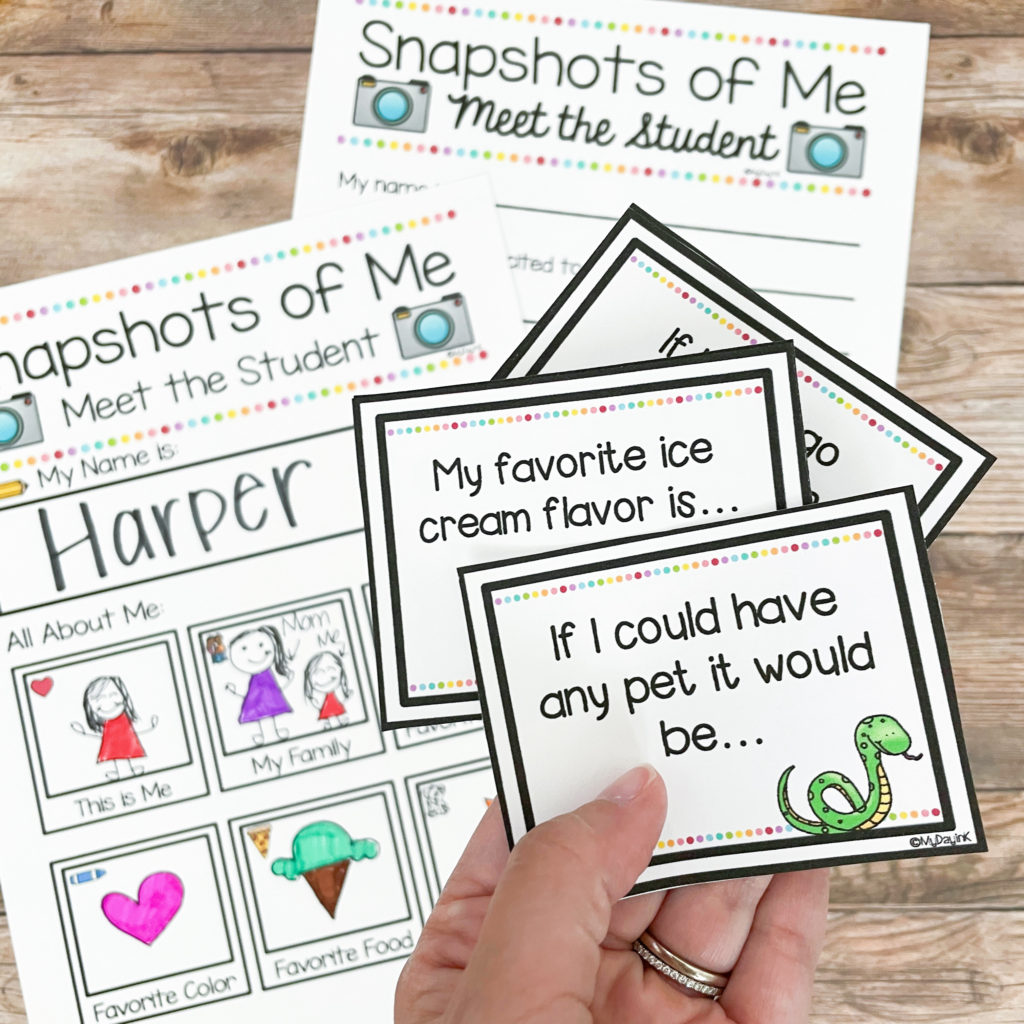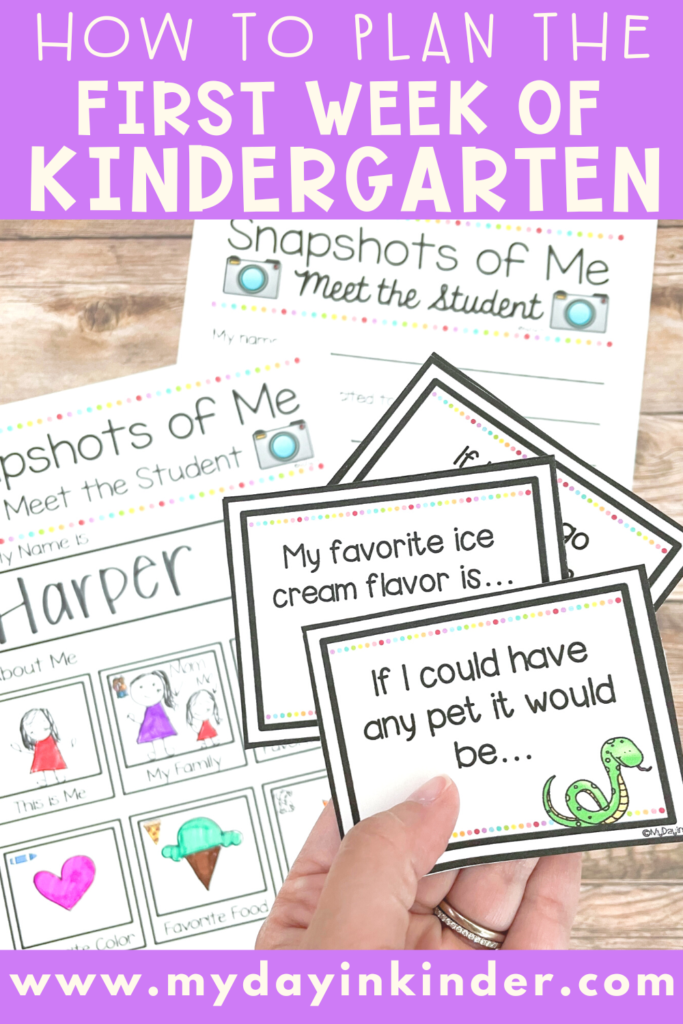How to Plan the First Week of Kindergarten

Are you preparing for a year of teaching kindergarten, and you aren’t sure where to begin? Does the thought of getting your classroom ready overwhelm you? You are in the right place! Today, I have three tips for how to plan the first week of kindergarten! These tips will ensure you start your year on the right foot, and create a classroom environment that you love being a part of!

Know Your Routines and Procedures
There is no such thing as being ‘overprepared’ when it comes to teaching kindergarten. So, although it may sound like a lot to list out every routine and procedure you need to teach during the first week of school, it’s not a wasted effort. A list like this is essentially a whole week of mini-lessons, already written out. Each routine needs to be explicitly taught. Little learners will not remember how to behave in the hallway unless you show them. They do not know how to line up until you practice. The first week of school is devoted to teaching them how to actually BE kindergarteners. Is it a lot of work? Yes. Will you be tired? Yes. Is it all worth it? Absolutely!
The time spent reviewing routines and procedures paves the way for you to be able to teach later. It’s impossible to complete a lesson successfully when you are battling behavior disruptions and giving reminders. Taking the time to teach routines on the front end saves you so much stress later. If you want a completed classroom routines and procedures checklist, you can grab one here!

Over Plan
When you plan the first week of kindergarten, it’s wise to over plan. Because your kindergarten students are doing this for the first time, do not plan for lessons and activities to be long. Keep all activities between 5-20 minutes to hold their attention and to keep them engaged. With activities being so brief, you must make sure that you have enough to fill the day. Stock your lesson plans full of quick mini-lessons that teach kindergarten behavior skills! I enjoy teaching a brief mini-lesson about how to do an activity, then doing the activity for a few minutes.
For example, carve out a few minutes before recess each day to review recess behavior expectations. Then, go to recess! When you come back in, teach a brief mini-lesson about entering the classroom and coming to the rug. Practice together. Then, once you are on the rug…read a story! Build your mini-lessons into your daily schedule to keep them brief and keep your students moving. I have a mega bundle that is packed with the visuals and mini-lessons you need to teach all of your procedures, quickly!

Incorporate Community Building
On top of helping each student regulate themselves, it’s also important to foster a community in your classroom! In the midst of all of the learning your students are doing about their classroom and school, it’s great to pause and take time to get to know each other. Play games, sing songs, and set aside time to be silly together. At the end of the day, we want our students to enjoy coming to school because they feel safe and cared for. Having expectations for behavior will ensure that they feel safe and know that you are in control. Taking time to foster a community is what will show them that they are cared for! This “Meet the Student” activity is a great way to help your students get to know each other!
The First 25 Days of K
My course ‘The First 25 Days of K’ is open to new members! In this course, I have video modules that walk teachers step-by-step through the first weeks of school. Learning how to plan the first week of kindergarten has never been so easy! These video modules show teachers exactly how to set the school year up for success. You will get tips like these, along with strategies, and dozens of back-to-school tools. If you are tired of dealing with behavior management issues that never get better, or you’re tired of repeating yourself to your kindergartners all year long…this course is for YOU. Click HERE to check it out.

